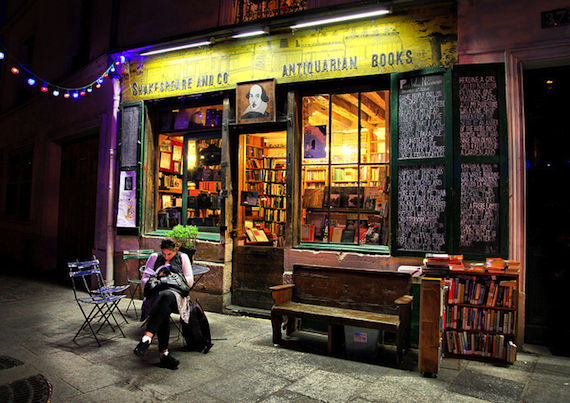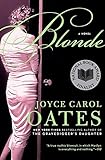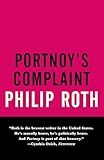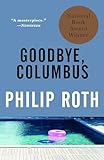
Most literary novelists feel relatively confident they can sell copies of their newly published book to their parents, probably to their siblings, maybe (if they haven’t sparred too often over loud music or lawnmowers or leaf blowers) to their neighbors. Their local bookstore, if they still have one, is likely to agree to carry the book too and may even put a copy in the shop window or on a central table.
With a review or two in a local paper, these same writers may also experience the disconcerting ecstasy of seeing their book in the palms of a stranger sitting across from them on a bus or subway. With a few reviews in a national publication or by powerful bloggers and Twitter pundits, he or she may receive SMS’d pics from friends who have seen it in bookstores in other U.S. towns and cities.
But how about beyond the fruited plain? Whose work gets read outside of America?
In 2008, Horace Engdahl, then permanent secretary of the Nobel Prize selection committee, infamously called American authors “too insular,” and “too sensitive to trends in their own mass culture.” The last American to receive the Nobel Prize for Literature was Toni Morrison in 1993; American writers, Engdahl said, “don’t really participate in the big dialogue of literature.” The implication was no one cares about contemporary American fiction but Americans.
During the ten years I lived in France, I witnessed firsthand the regional limitations of American literary fiction. But not all American novels go unnoticed. On any bestseller list in France, you’ll find The Help and Fifty Shades of Grey and the latest book by Dan Brown. You’ll also find American literary fiction. You just won’t find all or necessarily the same books as on similar lists in America. [Editor’s note: As the commenters have pointed out Fifty Shades author E.L. James is indeed British and not American. To clarify, her books, like The Help and those by Dan Brown have perched atop American bestseller lists.]
 Distribution decisions play an obvious role: if a reader in Lyon can’t get a book, the reader in Lyon won’t be reading it. I was ready to kiss the ground the day my publisher decided to create a paperback international edition for my debut novel, An Unexpected Guest, in addition to the hardback U.S. edition. I’ve subsequently seen An Unexpected Guest on bookstore shelves not only in France, but also in England, Switzerland, and Finland. I receive messages through my website from readers as distant as India and Malaysia. Foreign rights sales also award far-flung readers (and in my case have given me a couple of new first names: “Anna” on the Russian edition; “En” in Serbia).
Distribution decisions play an obvious role: if a reader in Lyon can’t get a book, the reader in Lyon won’t be reading it. I was ready to kiss the ground the day my publisher decided to create a paperback international edition for my debut novel, An Unexpected Guest, in addition to the hardback U.S. edition. I’ve subsequently seen An Unexpected Guest on bookstore shelves not only in France, but also in England, Switzerland, and Finland. I receive messages through my website from readers as distant as India and Malaysia. Foreign rights sales also award far-flung readers (and in my case have given me a couple of new first names: “Anna” on the Russian edition; “En” in Serbia).
 Set post-9/11 amongst expatriates in Paris, An Unexpected Guest seems a likely candidate for finding a global audience. But every country has its own literary predilections. With a relative absence of cronyism, the playing field is leveled; a new balance of criteria goes into building an audience. It seems to me that French readers frequently go for novels that manage to be both intensely American and yet possess one of the characteristics often attributed to works in their own contemporary oeuvre: dark, searching, philosophical, autobiographical, self-reflective, and/or poetic (without being overwritten). The last French novel I read, Le canapé rouge by Michèle Lesbre, clocked in at 138 pages, and French readers are not dismissive of short American novels either: Julie Otsuka’s 144-page-long Buddha in the Attic won this past year’s prestigious Prix Femina Étranger. But they are not averse to length either (see, for example, Joyce Carol Oates below). They also like authors who like France and have an understanding of French culture. They enjoy being taken to places – U.S. college campuses, inner Brooklyn, suburbia – they might normally never visit.
Set post-9/11 amongst expatriates in Paris, An Unexpected Guest seems a likely candidate for finding a global audience. But every country has its own literary predilections. With a relative absence of cronyism, the playing field is leveled; a new balance of criteria goes into building an audience. It seems to me that French readers frequently go for novels that manage to be both intensely American and yet possess one of the characteristics often attributed to works in their own contemporary oeuvre: dark, searching, philosophical, autobiographical, self-reflective, and/or poetic (without being overwritten). The last French novel I read, Le canapé rouge by Michèle Lesbre, clocked in at 138 pages, and French readers are not dismissive of short American novels either: Julie Otsuka’s 144-page-long Buddha in the Attic won this past year’s prestigious Prix Femina Étranger. But they are not averse to length either (see, for example, Joyce Carol Oates below). They also like authors who like France and have an understanding of French culture. They enjoy being taken to places – U.S. college campuses, inner Brooklyn, suburbia – they might normally never visit.
But just as there are many sorts of French authors, each American author admired in France brings an own set of attractions. Following are eight examples.
The New Yorker
During the ten years I lived in France, I could have easily believed Paul Auster was America’s preeminent living author. French prizes that Auster has won include the Prix France Culture de Littérature Etrangère, the Prix Medicis étranger, and Grand Vermeil de la Ville de Paris. In a 2010 interview, Auster, who lived in Paris from 1971-74, explained his cult-like status in France, thus: “In France, they feel I am on their side. It helps that I speak French. I am not the American enemy.” But can that account for the ardent following, which extends across the Continent, for his very New York-centric fiction? On his official Facebook page, a multi-lingual collage of comments, a Slovakian woman has this to say: “I generally don’t like American writers, but this one is really special, readable yet in-depth and philosophical.”
The Expat
 Douglas Kennedy’s renown overseas was chronicled in a 2007 TIME article entitled “The Most Famous American Writer You’ve Never Heard Of.” It’s hard to pigeonhole Kennedy’s ten thought-provoking-yet-page-turner novels, but their immense popularity in France — indeed, in all of Europe — is borne out by the droves of adoring fans who line up for his signature and a second’s worth of his Irish-American charm. (I’m not making that up. I’ve seen them.) A Chevalier of the Ordre des Arts et des Lettres, Kennedy keeps a home in Paris and speaks fluent French, but he was born and raised in New York City. His first three novels were published in the US, but when the last didn’t meet outsized expectations, U.S. publishers scattered. Alas for them – his fourth novel, The Pursuit of Happiness, sold more than 350,000 copies in the UK and more than 500,000 copies in France in translation alone.
Douglas Kennedy’s renown overseas was chronicled in a 2007 TIME article entitled “The Most Famous American Writer You’ve Never Heard Of.” It’s hard to pigeonhole Kennedy’s ten thought-provoking-yet-page-turner novels, but their immense popularity in France — indeed, in all of Europe — is borne out by the droves of adoring fans who line up for his signature and a second’s worth of his Irish-American charm. (I’m not making that up. I’ve seen them.) A Chevalier of the Ordre des Arts et des Lettres, Kennedy keeps a home in Paris and speaks fluent French, but he was born and raised in New York City. His first three novels were published in the US, but when the last didn’t meet outsized expectations, U.S. publishers scattered. Alas for them – his fourth novel, The Pursuit of Happiness, sold more than 350,000 copies in the UK and more than 500,000 copies in France in translation alone.
The Soul Mate
 Written more than a decade ago and more than 750 pages long, Blonde continues to fly off the shelf in French bookstores. The Falls won the 2005 Prix Femina for Foreign Literature. French director Laurence Cantet just brought out a film adaptation of Foxfire: Confessions of a Girl Gang. I asked Joyce Carol Oates about her avid French following. “For me,” she says, “the very sound of French spoken is musical, beautiful, subtly cadenced.” Her involvement with French language began in high school; as an adult she has taught and published French literature. “This is my background for writing, and my relationship with the French reading public may be related to it.” She also praises her translators. But the French devour Oates’s dazzling, precise prose equally in English; at France’s largest English-language bookstore, WH Smith/Paris, along the Rue de Rivoli, Oates is one of the nine American authors of literary novels most in demand with customers. Perhaps her novels take French readers into an America that simultaneously surprises and confirms their expectations?
Written more than a decade ago and more than 750 pages long, Blonde continues to fly off the shelf in French bookstores. The Falls won the 2005 Prix Femina for Foreign Literature. French director Laurence Cantet just brought out a film adaptation of Foxfire: Confessions of a Girl Gang. I asked Joyce Carol Oates about her avid French following. “For me,” she says, “the very sound of French spoken is musical, beautiful, subtly cadenced.” Her involvement with French language began in high school; as an adult she has taught and published French literature. “This is my background for writing, and my relationship with the French reading public may be related to it.” She also praises her translators. But the French devour Oates’s dazzling, precise prose equally in English; at France’s largest English-language bookstore, WH Smith/Paris, along the Rue de Rivoli, Oates is one of the nine American authors of literary novels most in demand with customers. Perhaps her novels take French readers into an America that simultaneously surprises and confirms their expectations?
The Autobiographer

 Philip Roth first won acclaim in France with Goodbye, Columbus in 1960; his fame was cemented with Portnoy’s Complaint in 1969. He’s since won the Prix de Meilleur livre étranger for American Pastoral and the Prix Médicis étranger for The Human Stain. The French often speak of a quasi-autobiographical quality in his works, citing it as a passageway to truths about certain periods of time and segments of society in America. It was during an interview about his most recent and apparently last novel, Nemesis, with the French publication, InRocks, that Roth chose to announce his intention to retire from writing fiction. The news spread like wildfire throughout France before it could even be picked up by a U.S. news agency.
Philip Roth first won acclaim in France with Goodbye, Columbus in 1960; his fame was cemented with Portnoy’s Complaint in 1969. He’s since won the Prix de Meilleur livre étranger for American Pastoral and the Prix Médicis étranger for The Human Stain. The French often speak of a quasi-autobiographical quality in his works, citing it as a passageway to truths about certain periods of time and segments of society in America. It was during an interview about his most recent and apparently last novel, Nemesis, with the French publication, InRocks, that Roth chose to announce his intention to retire from writing fiction. The news spread like wildfire throughout France before it could even be picked up by a U.S. news agency.
The Poet
 Go to “books” on the French Amazon site, type in “Laura,” and the first prompt to come up will be “Laura Kasischke.” Kasischke’s most recent novel, The Raising, became a bestseller in France within a matter of days; it was shortlisted for the 2011 Prix Femina Étranger, and nominated for the JDD France Inter Prix and Telerama-France Culture. Be Mine and In a Perfect World have sold prodigiously. In the U.S., Kasischke, who teaches at U. Michigan, has probably won more acclaim for her poetry. She graciously points to “having a fantastic editor and press… [and] fantastic translators” when I ask her about the recognition for her novels in France. But Kasischke was the other female author on the list of nine top-selling American authors given to me by WH Smith/Paris — like Oates, she is being read both in translation and in English. “She is the painter of the American Midwest, an America where behind the walls of nice manners live individuals overwhelmed with sadness and boredom,” influential French journalist Francois Busnel stated on French television last year.
Go to “books” on the French Amazon site, type in “Laura,” and the first prompt to come up will be “Laura Kasischke.” Kasischke’s most recent novel, The Raising, became a bestseller in France within a matter of days; it was shortlisted for the 2011 Prix Femina Étranger, and nominated for the JDD France Inter Prix and Telerama-France Culture. Be Mine and In a Perfect World have sold prodigiously. In the U.S., Kasischke, who teaches at U. Michigan, has probably won more acclaim for her poetry. She graciously points to “having a fantastic editor and press… [and] fantastic translators” when I ask her about the recognition for her novels in France. But Kasischke was the other female author on the list of nine top-selling American authors given to me by WH Smith/Paris — like Oates, she is being read both in translation and in English. “She is the painter of the American Midwest, an America where behind the walls of nice manners live individuals overwhelmed with sadness and boredom,” influential French journalist Francois Busnel stated on French television last year.
The Cowboy
 Whether set on the border areas of the U.S. and Mexico, in the South, or in post-apocalyptic landscape, Cormac McCarthy’s novels wax dark and darkly reflective. Oliver Cohen, Cormac McCarthy’s French editor, has explained their popularity in France thus: “McCarthy reveals a collective anguish, to which he figured out how to give a shape.” French novelist Emilie de Turckheim offered me for further insight: “[McCarthy] manages…. to use, with virtuosic erudition, all the lexical richness of his language… at same time as abusing and decomposing English syntax to create a language brutal, impressionistic, extraordinarily poetic, capable of mimicking the immense violence of everyday life.” The French routinely compare him to Faulkner, a deceased American author they venerate. The French translation of No Country for Old Men sold about 100,000 copies. La Route, aka The Road, has to date sold over 600,000, with no sign of abating.
Whether set on the border areas of the U.S. and Mexico, in the South, or in post-apocalyptic landscape, Cormac McCarthy’s novels wax dark and darkly reflective. Oliver Cohen, Cormac McCarthy’s French editor, has explained their popularity in France thus: “McCarthy reveals a collective anguish, to which he figured out how to give a shape.” French novelist Emilie de Turckheim offered me for further insight: “[McCarthy] manages…. to use, with virtuosic erudition, all the lexical richness of his language… at same time as abusing and decomposing English syntax to create a language brutal, impressionistic, extraordinarily poetic, capable of mimicking the immense violence of everyday life.” The French routinely compare him to Faulkner, a deceased American author they venerate. The French translation of No Country for Old Men sold about 100,000 copies. La Route, aka The Road, has to date sold over 600,000, with no sign of abating.
The Philosopher-Poets
 According to Sylvia Whitman, proprietor of the English-language bookstore near Notre Dame Cathedral, Shakespeare & Company, Russell Banks and Jim Harrison are among the five contemporary American authors most frequently requested by their French patrons. (The other three are Auster, Kennedy, and David Foster Wallace.) Banks and Harrison use literary realism to take their readers into richly tinted but not always rosy pockets of modern America. Harrison, whose numerous fiction works include Legends of the Fall and just-released The River Swimmer, lives in Montana; in France, he’s been described as “the bard of America’s wide-open spaces… of the eternal conflict between nature and society.” Like McCarthy, Harrison is considered a literary descendant of Faulkner. Russell Banks, whose many novels include The Sweet Hereafter and most recently The Lost Memory of Skin, lives in upstate New York; InRocks has called him “the best portraitist of marginal society in America.” In 2011, he was awarded him the rank of Officier des Arts et Lettres by the French Minister of Culture. Russell and Harrison both also write poetry — a sort of win-win, all things considered.
According to Sylvia Whitman, proprietor of the English-language bookstore near Notre Dame Cathedral, Shakespeare & Company, Russell Banks and Jim Harrison are among the five contemporary American authors most frequently requested by their French patrons. (The other three are Auster, Kennedy, and David Foster Wallace.) Banks and Harrison use literary realism to take their readers into richly tinted but not always rosy pockets of modern America. Harrison, whose numerous fiction works include Legends of the Fall and just-released The River Swimmer, lives in Montana; in France, he’s been described as “the bard of America’s wide-open spaces… of the eternal conflict between nature and society.” Like McCarthy, Harrison is considered a literary descendant of Faulkner. Russell Banks, whose many novels include The Sweet Hereafter and most recently The Lost Memory of Skin, lives in upstate New York; InRocks has called him “the best portraitist of marginal society in America.” In 2011, he was awarded him the rank of Officier des Arts et Lettres by the French Minister of Culture. Russell and Harrison both also write poetry — a sort of win-win, all things considered.
Ultimately, finding readership in France or elsewhere is like any love affair: alchemy, composed of varied, delicate elements. “Reading, an open door to the enchanted world,” wrote French Nobel laureate Francois Mauriac.
Image via christine zenino/Flickr








